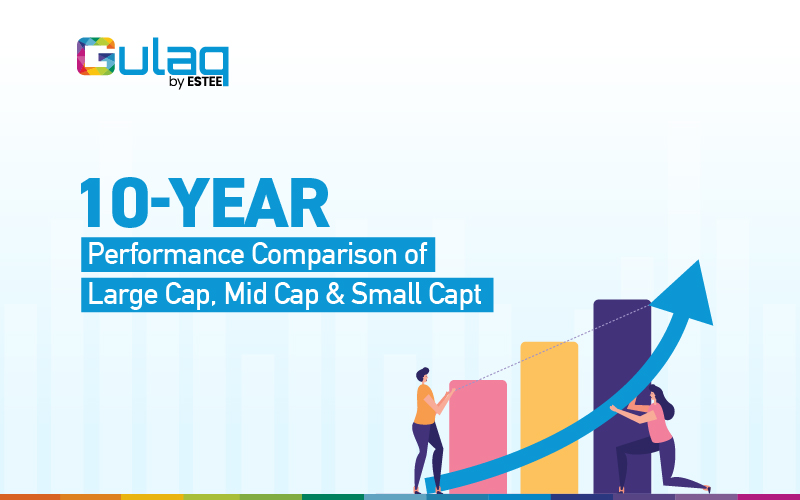
Advantages of Portfolio Management Services
Equity market is a growth oriented investment asset. There are multiple ways to invest in equity markets in India. Broadly there are 4 categories.
- Index Funds/ETFs
- Mutual Funds
- Model Portfolio of stocks from RIAs like Estee
- PMS
In this article we will compare Portfolio Management Schemes (PMS) to Mutual Funds and see who and why one should consider investing in PMS. Before we go into the analysis, let us give a brief about the 3 types of PMS schemes available.
Discretionary:
In this type of PMS, the fund manager undertakes the investment decisions independently. They are given full authority by the investor to buy and sell shares on their behalf. The investor does not have much say in the portfolio design and realignment.
Non-discretionary:
In this, the investor has to approve all buy-sell transactions. Only upon approval the portfolio manager is allowed to execute the transactions. The client has full control over the portfolio buy and sell decisions
Advisory:
Here, the portfolio manager provides expert advice to the investor. It is up to the client to follow the advice and execute the plan. Here, the entire onus and control remain with the investor and the PMS manager is just the advisor.
Our analysis on why and who should invest in PMS will be based on different parameters like fees structure, personalization, diversification etc.
Personalization:
The USP of PMS is the personalization it offers to investors. Portfolio managers take into consideration the risk appetite, diversification, returns expectation, etc., to create a customized portfolio for the investors. For example, if you work in the IT sector and already hold substantial ESOPs from your employer, then a PMS fund manager might offer you a portfolio which is devoid of IT sector stocks.
On the other hand, Mutual funds are not customizable as per investors’ needs. Investors can select which type of mutual funds to invest in, but that has a fair set of limitations compared to the degree of personalization PMS can offer.
Diversification:
Mutual funds typically have about 40-50 stocks. In PMS there are concentrated PMS portfolios which have as low as 10-15 stocks and more diversified ones would also hold 30-40 stocks. So they are more volatile but can have more upside as well.
However, if we look at asset class diversification, PMS is ahead of Mutual funds. PMS portfolios can have asset classes like real estate instruments, structured products, foreign equities, in addition to equity and debt instruments. Mutual funds suffer miserably due to the restrictions on mutual funds asset allocation. The diversification coupled with low correlation in returns for asset classes offers superior diversification advantage to PMS products investors.
Ability to choose your Fee model:
Mutual Funds have only AUM based pricing (asset under management) model. This means that irrespective of the funds’ performance the manager takes a small management fee. This is typically in the range of 1-2% of the total fund value.
PMS however offers multiple fee structures. If one invests in performance based fees, in that case the interest of the fund manager is aligned with your interest. Fund manager only gets paid if the performance is there. Performance is typically measured as the amount of returns over and above the benchmark. If a fund manager only offers fixed pricing, he gets paid irrespective of the performance. Fund managers can offer a mix of both as well.
Ease of monitoring:
Most PMS companies have their own website with credentials created for their clients. This user-friendly interface provides easy access to their portfolios along with high-end analytics and relevant content to closely track the performance. Clients can also benchmark their investment returns with external funds. Thanks to SEBI regulations, portfolio managers have to maintain transparency and inform clients about costs, performance, etc. regularly.
Investment research and Technology usage:
New-age PMS firms, such as Estee, have deployed Artificial Intelligence and Machine Learning technology to add another layer of expertise in portfolio construction. These algorithms are most efficient at tracking the cues, and spotting the opportunities faster.
PMS firms have strong expertise in doing fundamental and technical analysis, and linking with macro situations. They know what kind of bets they can take based on clients’ needs. The availability of specialists of different asset classes makes it possible to create a well-diversified portfolio optimized on multiple asset classes.
Who should invest in PMS?
One should never invest more than 20-25% in a single fund, unless it’s an index fund.
So given the minimum investment size of a PMS is 50 lacs, one should only invest in a PMS if the total portfolio value is above 2 crores. If it’s below 2 crore, one should stick with Mutual Funds. In Mutual funds one can start with Rs 500 as well.
Conclusion:
PMS products are designed to offer personalized and superior solutions to HNIs investment needs. The expertise PMS firms bring to the table coupled with personalized solutions make PMS products more suitable than mutual funds for investors with capital greater than 2 Crores.
Related Posts
Tax Harvesting: How to Reduce Your Tax Burden?
FY 23-24 has been great for Gulaq. We were able to generate phenomenal returns for…
Don’t Miss the Forest for The Trees: Why Maxing Out the Rs. 1.5 Lakh Limit on Your PPF Before 5th of April Is Not Worth the Hype
As the financial year has ended, the buzz around investing the entire Rs. 1.5 lakh…
Why Active Fund Investing is so hard?
Would you consider investing in a fund that has significantly trailed its benchmark over the…
Halo Effect can be Dangerous to your Portfolio!
Charlie Munger once famously said, “It is remarkable how much long-term advantage people like us…








